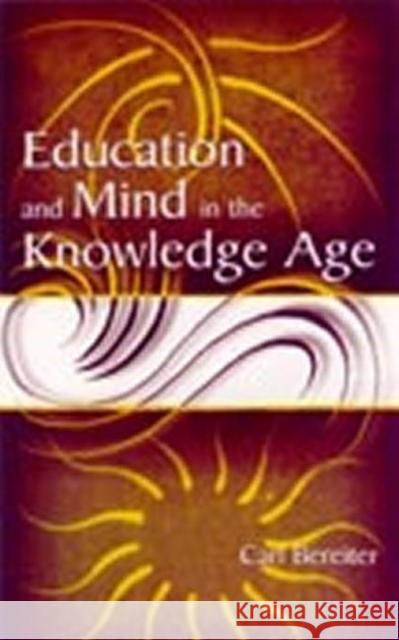Education and Mind in the Knowledge Age » książka
Education and Mind in the Knowledge Age
ISBN-13: 9780805839425 / Angielski / Twarda / 2002 / 540 str.
Education and Mind in the Knowledge Age
ISBN-13: 9780805839425 / Angielski / Twarda / 2002 / 540 str.
(netto: 932,90 VAT: 5%)
Najniższa cena z 30 dni: 881,54
ok. 22 dni roboczych.
Darmowa dostawa!
This work argues that in today's Knowledge Age, education's conceptual tools are inadequate to address the pressing educational issues and challenges of the times. Two things are required: to get away from the idea of the mind as a container and to understand the role of individual minds in societal knowledge production. An alternative model is proposed that the brain does not actually contain knowledge that we readily conceived of. The need is to understand how a brain thus constituted could sustain knowledgeable, intelligent behaviour. It is this model that needs to be developed in order to have a theory of mind that carries education into the knowledge age. The author situates and elaborates this theory of mind and discusses its practical educational implications. This work draws on new ways of thinking about knowledge and mind, including information processing, cognitive psychology, situated cognition, constructivism, social constructivism, and connectionism, but does not adhere strictly to any camp. Above all, it is concerned with developing a way of thinking about the mind that works for the new challenges faced by education.
In this book, Carl Bereiter--a distinguished and well-known cognitive, educational psychologist--presents what he calls "a new way of thinking about knowledge and the mind." He argues that in today's Knowledge Age, education's conceptual tools are inadequate to address the pressing educational challenges and opportunities of the times. Two things are required: first, to replace the mind-as-container metaphor with one that envisions a mind capable of sustaining knowledgeable, intelligent behavior without actually containing stored beliefs; second, to recognize a fundamental difference between knowledge building and learning--both of which are essential parts of education for the knowledge age. Connectionism in cognitive science addresses the first need; certain developments in post-positivist epistemology address the second. The author explores both the theoretical bases and the practical educational implications of this radical change in viewpoint.
The book draws on current new ways of thinking about knowledge and mind, including information processing, cognitive psychology, situated cognition, constructivism, social constructivism, and connectionism, but does not adhere strictly to any "camp." Above all, the author is concerned with developing a way of thinking about the mind that can usher education into the knowledge age. This book is intended as a starting point.











